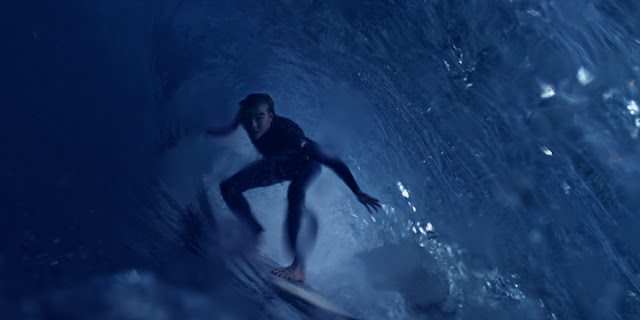Lucy - Dir. Luc Besson
“You mustn’t be afraid to dream a little bigger, darling.”
A jolt of pure unbridled cinematic energy; Lucy is bold and vibrant and whilst it may not be smart, it most certainly is not dumb.
First of all, can we please stop dismissing this film because of its science. Not only is this terribly narrow-minded, but writer/director Luc Besson doesn’t actually believe the myth about humans only using 10% of the brain to be true; he has used it for the benefit of telling the story, as he explains in this interview with HeyUGuys and here in an interview with The Guardian.
Yes, the idea that we only use 10% of the physical volume of our brain is a complete falsity and a myth, proved to be so through imagining techniques that show all of the brain in use at various times and the fact that damage to any part of the brain can impede cerebral function. However, we do not yet know what the brain is truly capable of. Imagine for a moment that our brain is a car: what if we’re just cruising along at 30 mph. Can we go faster? We know a car can go faster because the manufacturer will be able to estimate a top speed from their knowledge of how the car was put together. They will then test it, pushing it right up to its breaking point to prove its top speed. We will only know what the brain is truly capable of once we either understand every intricate detail of it or we push it to its breaking point.
Based on this current uncertainty, Besson is not promoting bad science with Lucy. It may all be complete nonsense: our brain may be working at its maximum capability. However until it has been disproved, Besson has every right to use it as a starting point for a film. He uses the 10% myth to simplify the science. It’s easier and more effective for the story to visualise the ‘10% of brain capacity’ idea on screen than it would be to use the ‘15% of neurons at the same time’ idea. Perhaps he misplaced his faith in us to not take the film at such face value.
Besson uses this starting point to story about a character who is slowly stripped of her humanity: as her humanity dwindles, Lucy’s knowledge of the world grows and she views the world in a manner beyond our understanding. She becomes overwhelmed as all of her life’s memories comes back to her and phones her mum whilst she is still able to feel that emotional bond. She manages just a flicker of a smile as she says goodbye to her slightly bemused flatmate, just after diagnosing a previously unknown medical condition.
It’s exhilarating to see a character constantly changing over a swift 80 minutes. As the drug unlocks more of her brain’s capability, Lucy’s priorities change. Crucially, she knows that her new capabilities will overwhelm her human body and that she will ‘die’. She could’ve easily stopped Mr Jang (Choi Min-sik) and his men when they storm the university, but at that moment she needed to focus elsewhere and so leaves the futile fighting of humanity to the cops and gangsters. It’s a brave move to ask an audience to invest in a character who loses all of the emotional attributes that we are able to recognise, but Besson and Johansson’s whole-hearted commitment makes it work. There's no switch or reversal in Lucy, she is only ever moving forward.
Besson also recognises that this film can’t afford to slow down as Lucy doesn’t have time to pause for thought and so the film is ruthlessly efficient. Pilou Asbæk’s (aka Michael Shannon’s more approachable Danish cousin) brief but outlandish appearance is memorable whilst Choi Min-sik’s lack of English makes Mr Jang even more intimidating. There are plenty of little character quirks too that enhance the characters: Mr Jang washes his hands with bottled water because he can afford to whilst the way that The Limey (Julian Rhind-Tutt) says “lower tummy” rather than stomach is undeniably creepy.
Whilst Lucy may have ambitions of grandeur that it (despite an admirable attempt) doesn’t quite achieve, it’s also suitably bonkers and hugely entertaining to make up for it. Besson goes all out with montages of human life, predatory wildlife and animal reproduction and birth. It may be odd but it feels appropriate enough in a film about evolution. The sequences showing the bursting of the bag and the drug’s activation may be similar to the ‘disease of the week’ sequences from TV show ‘House’, but they’re far more beautiful here.
The film moves so fast that it rushes too quickly through the final stages where the ideas that Besson puts forward are more abstract than those in the rest of the film, but the pacing of it all is part of the experience. Lucy left me giddy with excitement, close to going back to the start so that I could bathe in its exuberance all over again.
Lucy is everywhere but if you want to see her, the film is out now on all home media formats.







Comments
Post a Comment